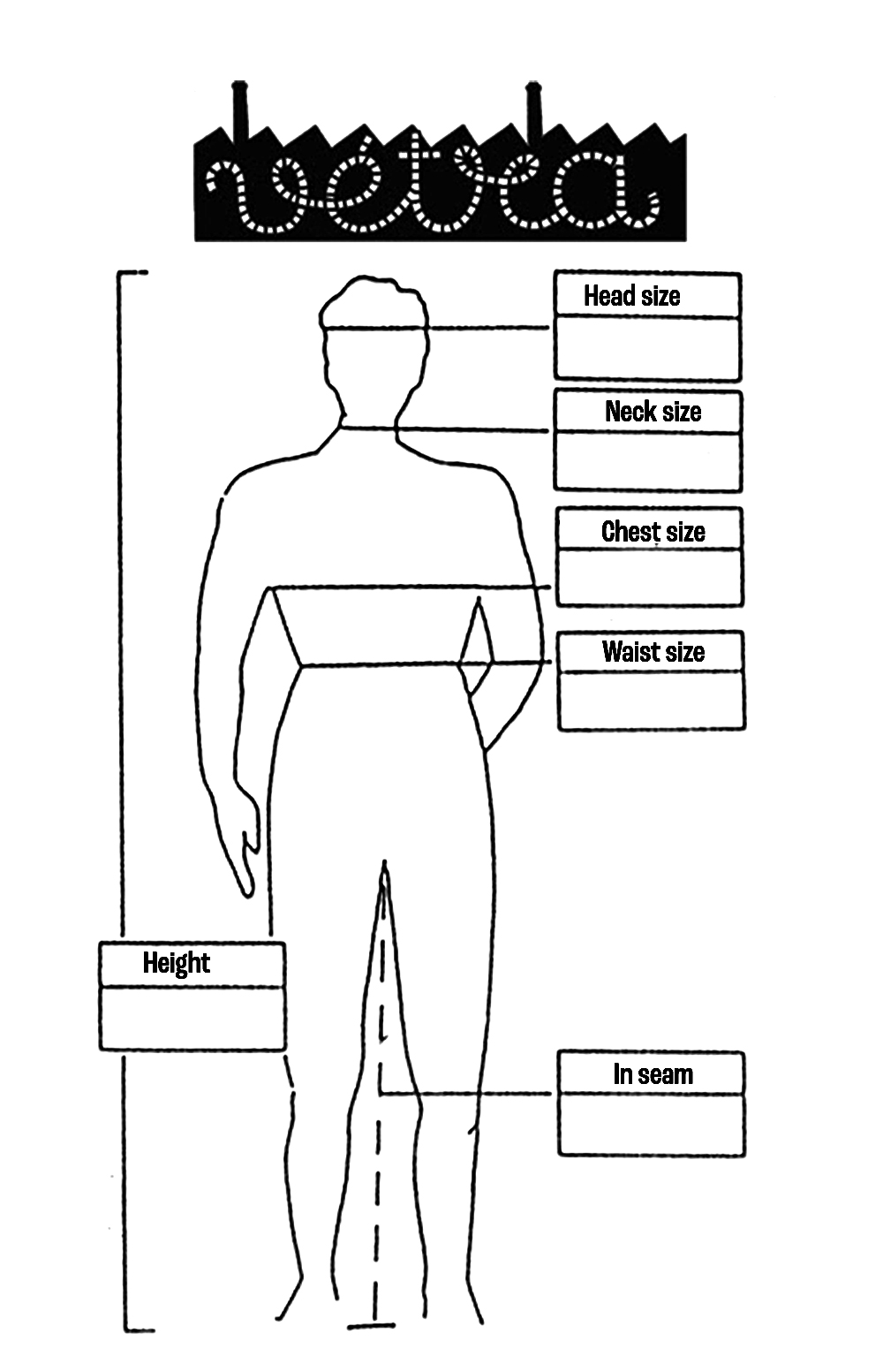Advertising of VETRA workwear
Already known and recognized, the family manufacture VETRA develops at the end of the 50s in a sector where advertising, imported from the United States is more and more present.
Contrary to some French brands, especially of alcohol, which paint advertisements on the walls of houses (for an annual rent), VETRA prefers to bet on what today would be called goodies for its customers, and enamel nameplates for its resellers.
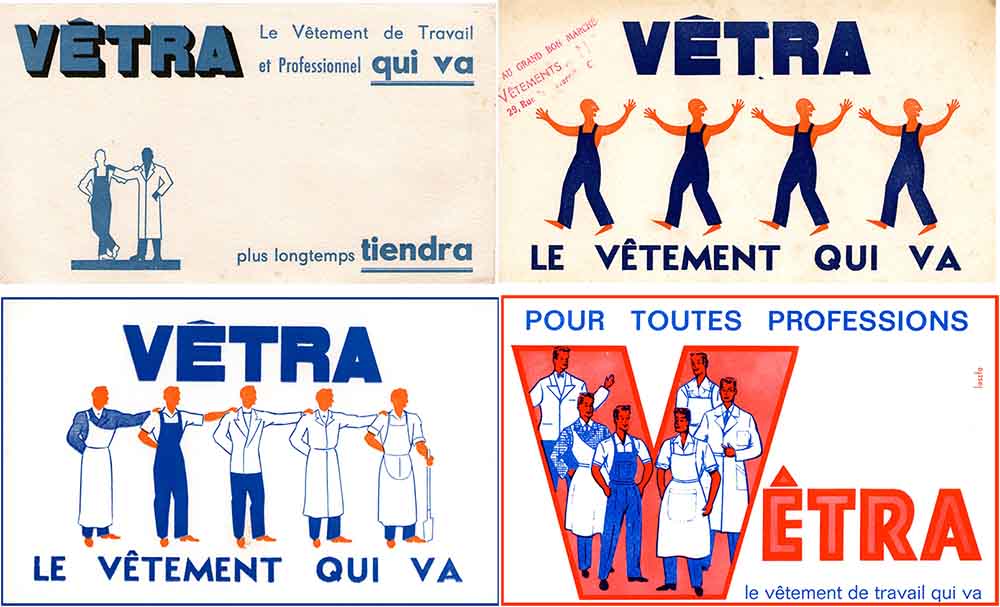
VETRA blotters, goodies of the past
At a time when people still write a lot with a pen, blotters are naturally a good advertising medium.
Blotting pads were a common item on all desks at this time, necessary to avoid ink smudges and to allow letters to be sent quickly without waiting for them to dry. At the time, blotting pads were a regular consumable. They easily attract attention when you are at your desk in your store and you want to order new overalls! ...
The visuals have evolved over the years, the very first one on the top left, designed by Edouard himself, was reserved in the 50's only for the managers of VETRA's retail stores in all the major cities of France.
Blotters from the 50's and 60's above, 70's and 80's below
The enamelled signs, symbol of an era.
The enamelled signs are nowadays sought-after objects for the collection.
Formerly used to indicate in a prestigious way the presence of a brand in a store, or as a sign on the pediment in the streets, it was also a sign of prestige and quality to have the name of its brand on such a durable support.
The VETRA signs were loaned to the customer stores and had to be returned when the partnership closed or ended. Since the plates are still the property of the brand, a good part of them have been returned and are stored in the attics of the factory.
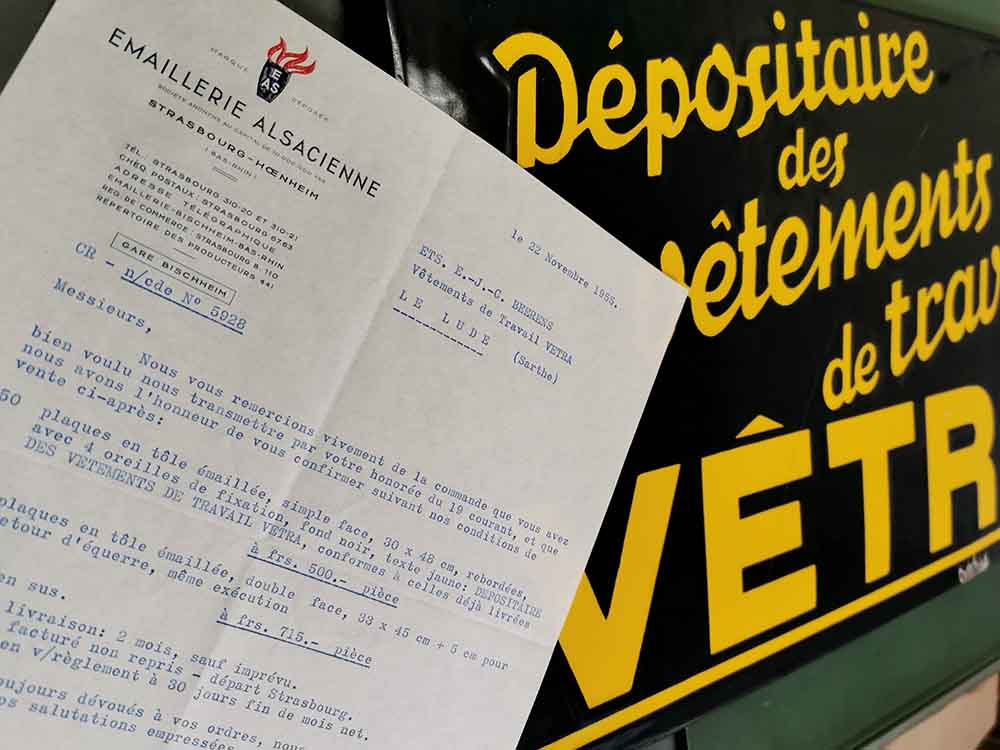 A VETRA sign with the manufacturer's order confirmation dated 1955.
A VETRA sign with the manufacturer's order confirmation dated 1955.Vehicles, mobile advertising.
Although less intended for advertising, all the historic vehicles of the manufacture carried the brand, allowing, during regional trips, to continue the diffusion of advertising.
Notably the staff pick-up bus that drove through the countryside in the morning and evening so that employees could come to the factory.
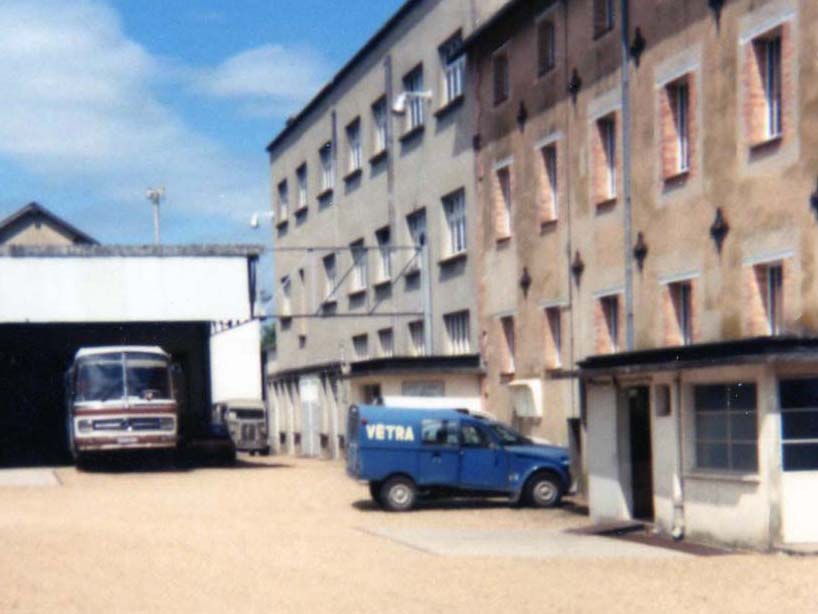
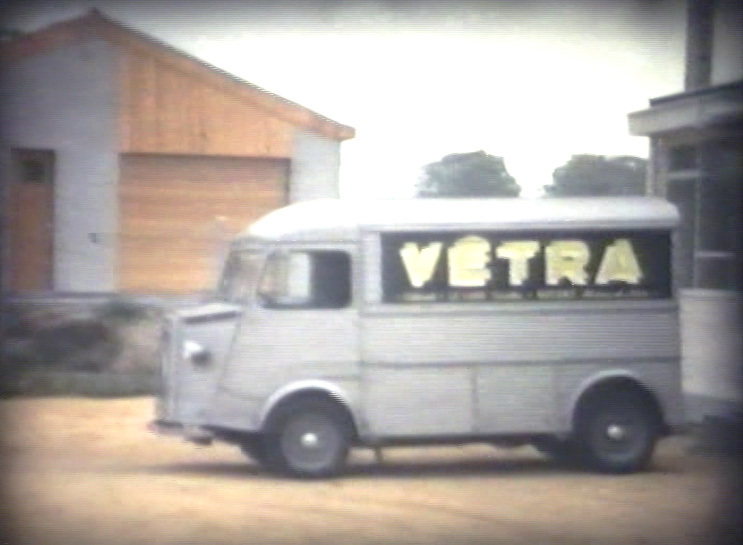
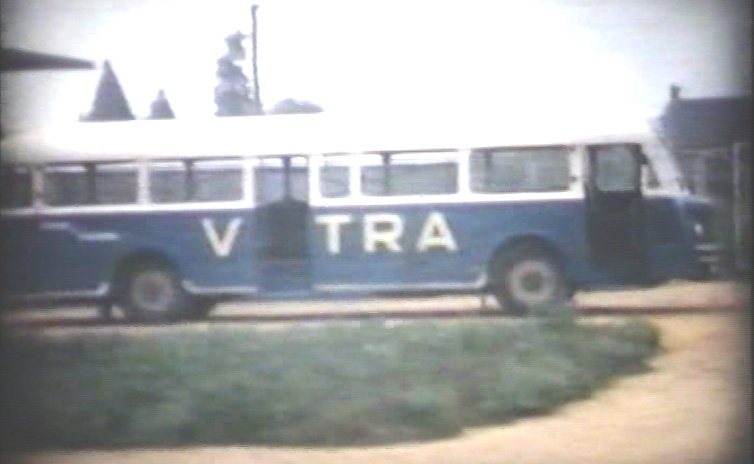
 The 2CV Citroen VETRA still in service today!
The 2CV Citroen VETRA still in service today!
